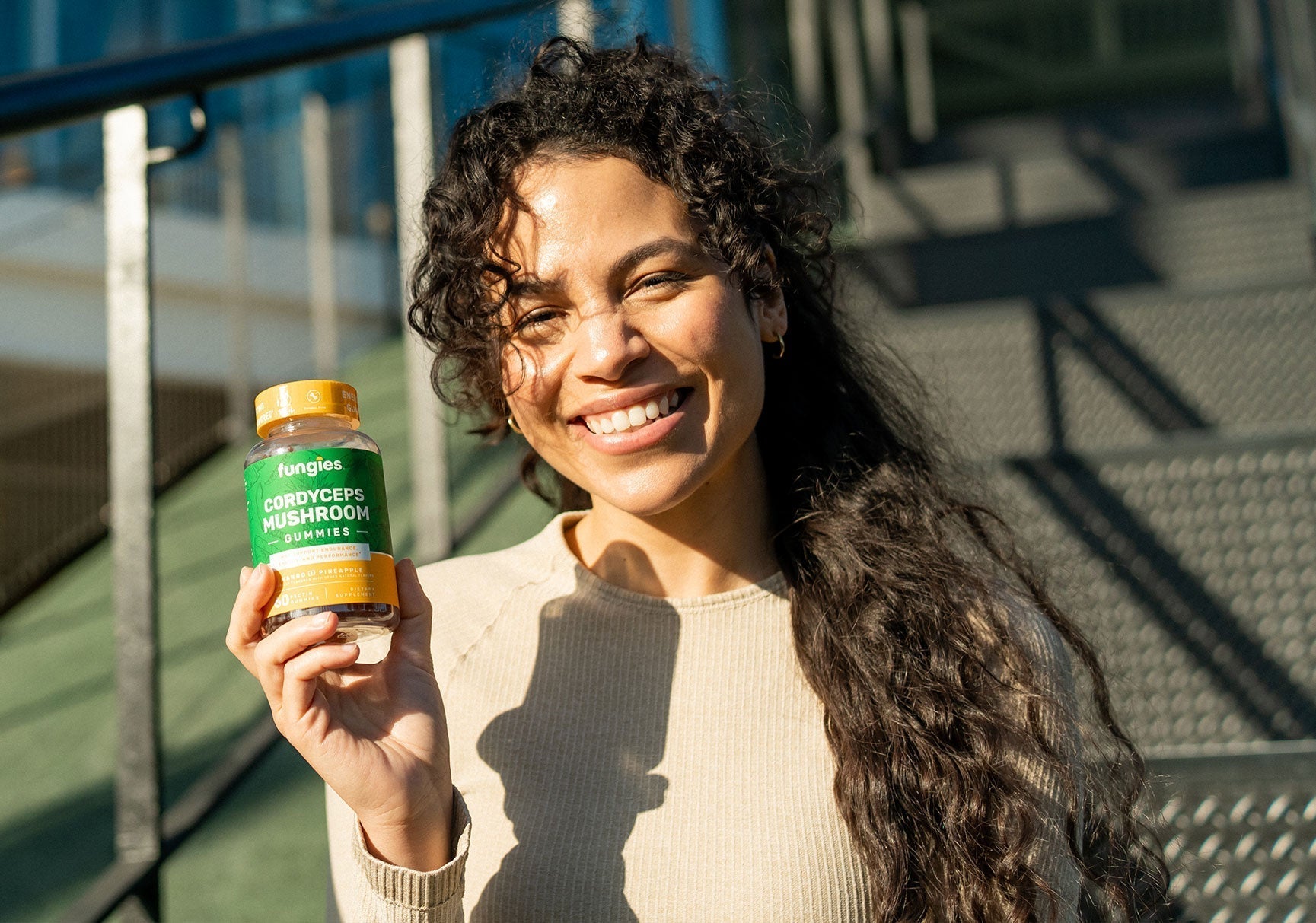Are you looking for natural ways to boost the health and appearance of your skin? If so, taking Cordyceps mushrooms may help support healthy skin by boosting collagen production, the protein that supports your skin’s natural beauty.
Let’s dive into what Cordyceps mushrooms are, their role in skin health and collagen production, and how you can incorporate Cordyceps into your daily routine.
What are Cordyceps Mushrooms?
Cordyceps are a type of functional mushroom known for their antioxidant and anti-inflammatory properties. Cordyceps are usually found growing on caterpillars in the high-altitude regions of China, but nowadays, they are also commonly cultivated into an extract form for easier access and consumption.
You may be curious about how you can incorporate Cordyceps into your skincare routine. Cordyceps are used in practice to achieve various benefits, including improving energy, enhancing exercise performance, boosting heart health, and optimizing libido. Recent research has also shown a relationship between Cordyceps and collagen production and skin health.
There are over 400 different species of Cordyceps, but Cordyceps militaris and Cordyceps sinensis are the two most widely studied and used in supplements.
It’s important to know that Cordyceps militaris contains more cordycepin than other varieties, the bioactive compound linked to this mushroom's anti-aging and skin-boosting properties.[1]
Cordyceps and Collagen Production
Cordyceps mushrooms have been seen to affect collagen production, which can support healthy aging positively.
Collagen is a protein naturally found throughout the body - in your hair, skin, nails, and connective tissue. It’s essential for maintaining the structure, elasticity, and strength of these tissues, including those in your skin.
While our body can make collagen, the ability to do so declines with age. This natural decline in collagen production is associated with aging skin.[2]
This is where Cordyceps mushrooms can benefit the skin. They are known for their adaptogenic properties, which help the body better respond to stressors that negatively affect our skin health. These stressors can damage our skin lining, lead to inflammation, and accelerate aging.
One recent study points to oxidative stress as one of the biggest causes of skin aging. In this study, those taking a Cordyceps extract had increased cell regeneration and fewer damaged cells. More cell regeneration and growth = healthier skin health overall.[3]
This may be because Cordyceps mushrooms, especially the Cordyceps militaris variety, are a rich source of cordycepin, the antioxidant compound seen to be responsible for its collagen-producing effects.[3]
Using Cordyceps for Youthful Skin
In addition to staying hydrated, eating an anti-inflammatory diet, and wearing sunscreen, taking Cordyceps gummies is an easy add-on to your daily skincare routine. Rather than mixing scoops of collagen powder in your coffee (which doesn't always mix well), you can pop one delicious Fungies’ Cordyceps gummy to boost your daily collagen.
Each of our Cordyceps mushroom gummies contains the equivalent of 500mg of Cordyceps militaris mushrooms, minimal added sugar, and is infused with natural fruit flavors.
If you’re looking to bolster the health of your skin, adding a daily dose of Fungies Cordyceps Mushroom Gummies is one of the most effortless ways to do so.
References
- Jędrejko KJ, Lazur J, Muszyńska B. Cordyceps militaris: An Overview of Its Chemical Constituents in Relation to Biological Activity. Foods. 2021 Oct 30;10(11):2634. doi: 10.3390/foods10112634. PMID: 34828915; PMCID: PMC8622900.
- Varani J, Dame MK, Rittie L, Fligiel SE, Kang S, Fisher GJ, Voorhees JJ.. Am J Pathol. 2006 Jun;168(6):1861-8. doi: 10.2353/ajpath.2006.051302. PMID: 16723701; PMCID: PMC1606623.
- Nawapol Upatcha, Palakorn Kaokaen, Natchadaporn Sorraksa, Ruchee Phonchai, Phongsakorn Kunhorm, Nipha Chaicharoenaudomrung & Parinya Noisa (2023). Journal of Microencapsulation, DOI: 10.1080/02652048.2023.2198008.

